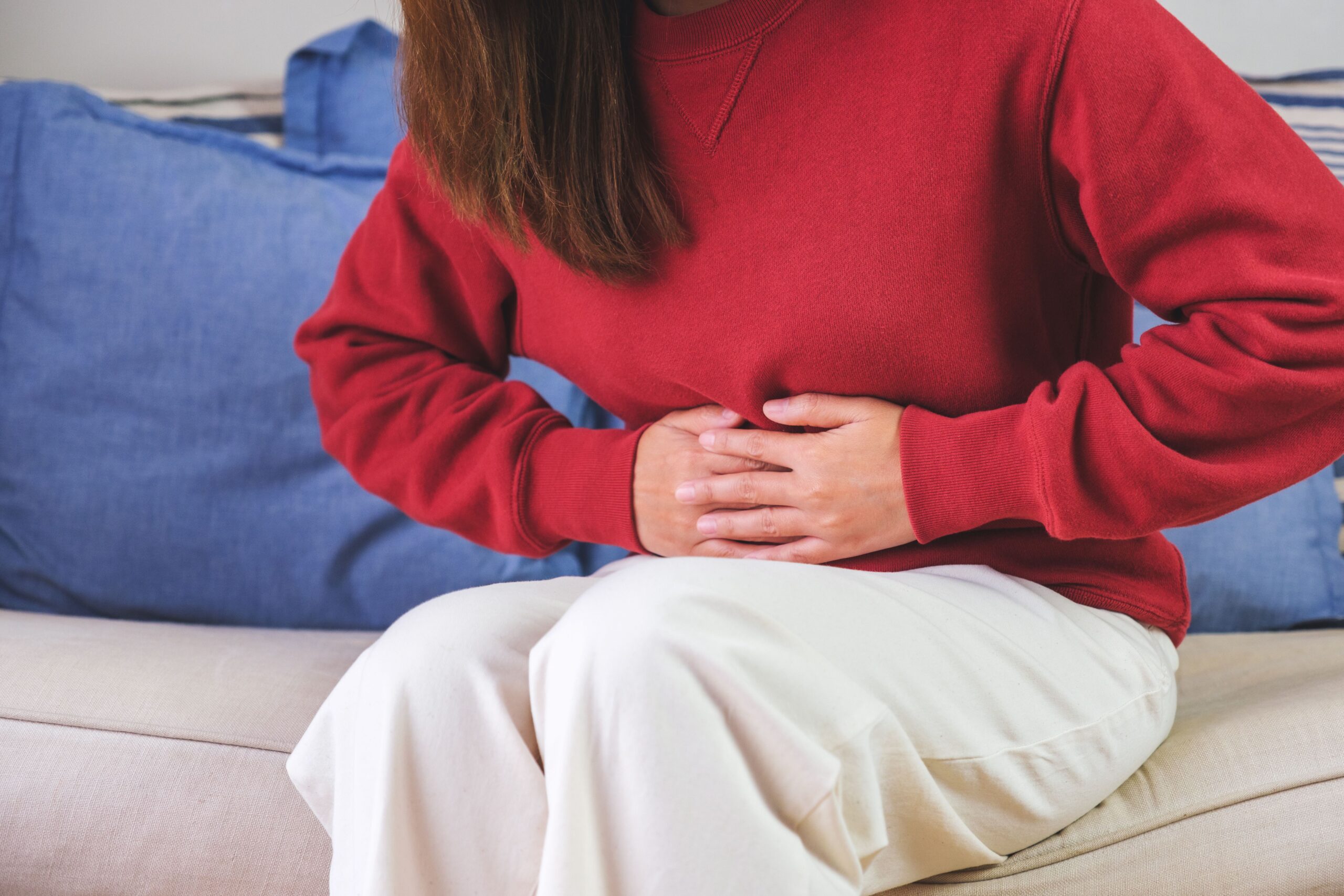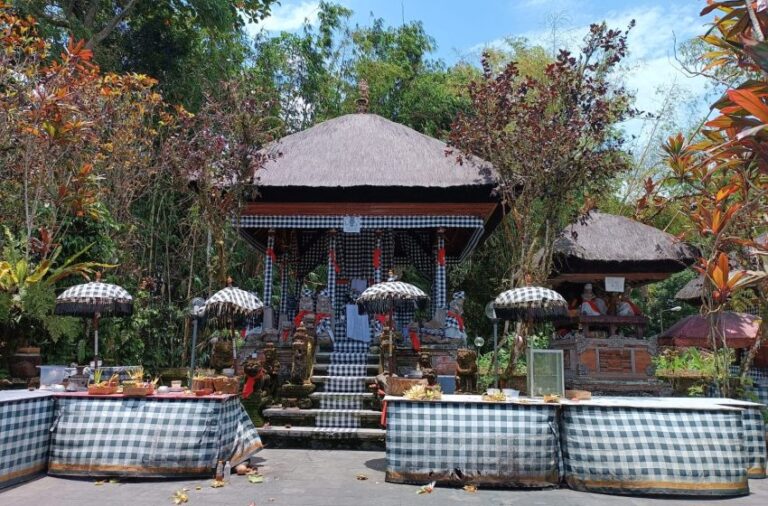Stomach cramps, diarrhea and even vomiting are not the way that any of us want to spend our holidays.
Unfortunately, Bali Belly is a real risk for travellers.
Our guide will walk you through what Bali Belly is, how you can avoid getting it, how to tell if you have got it, what to do about it and who to see if things start getting out of hand.
The most important thing to remember is that Bali Belly doesn’t last forever and most cases will clear up within a day or so.
Bali Belly And Traveller’s Diarrhoea
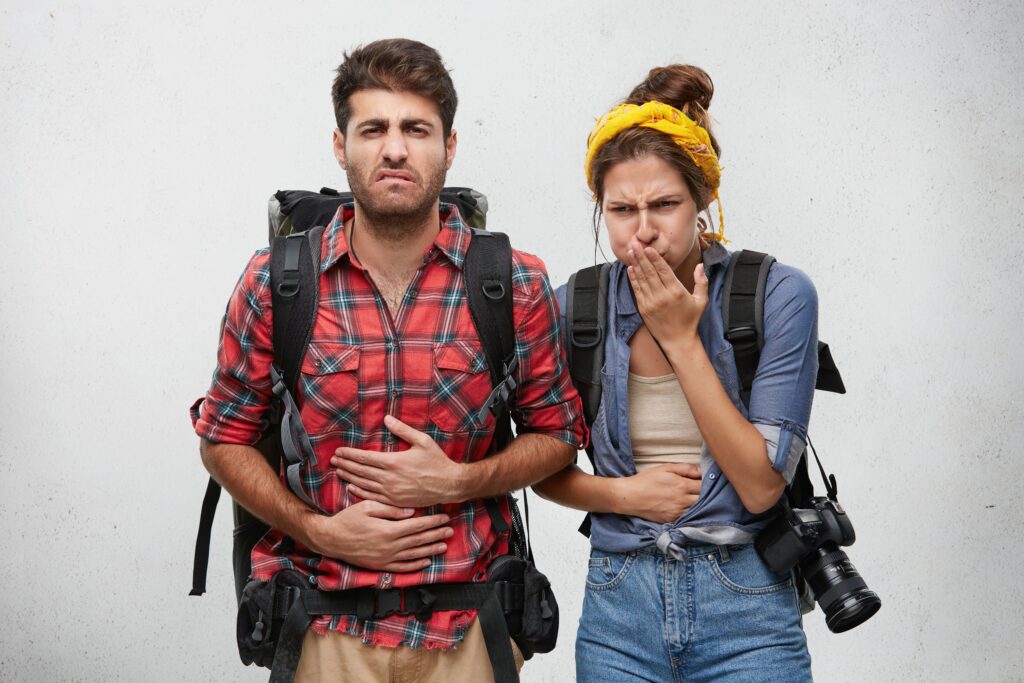
The name “Bali Belly” is quite unfair given that what people are referring to is actually traveller’s diarrhoea and you can get it anywhere in the world when you travel.
It mainly comes from consuming contaminated food and drinking contaminated water. To the locals, the bacteria living in the water supply and on food items are harmless because their bodies are used to them.
To somebody who has never been to Bali before, your body needs to develop some immunity and before it can, it will get a little sick.
Fortunately, Bali Belly is a self-limiting condition (that is, the sickness pushes itself out of the body over time) and doesn’t normally last for more than 24 hours (and at an extreme push – no more than a week).
There are more risks of getting these conditions in developing countries because there are lower levels of hygiene practised in these places.
Bali Belly also tends to affect younger people who choose more adventurous ways of living rather than older people.
You may also hear the condition called the “Bombay Belly”, “Rangoon Runs”, “Tijuana Trots”, “Montezuma’s Revenge”, etc. if you go elsewhere on the planet.
They are all simply colloquial names for traveller’s diarrhoea.
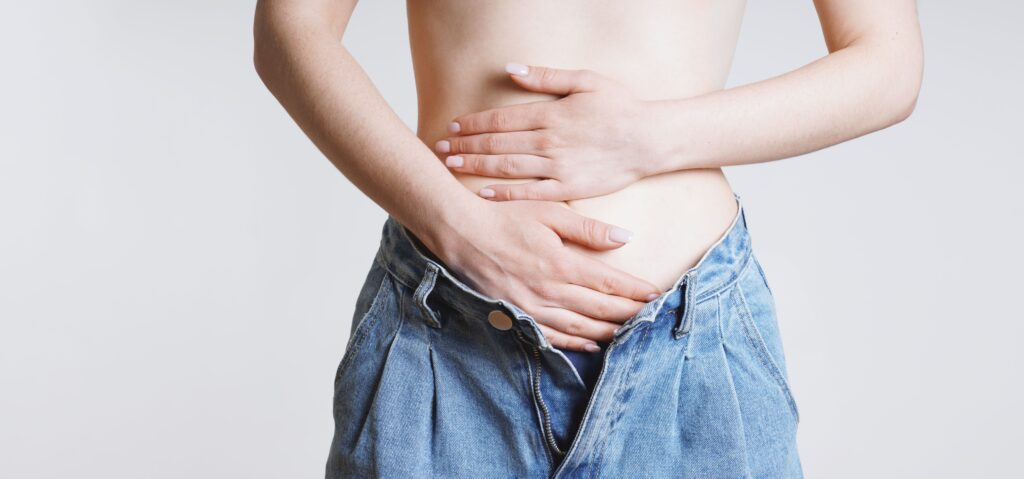
If you think you may have developed Bali Bali then you may have some or all of the following symptoms:
-
Abdominal pain, bloating, or cramps
-
Nausea or vomiting
-
Regular urges to use the toilet
-
Loose, watery stools that are passed on a regular basis
-
Temperature (usually mild)
-
Weakness or discomfort (malaise)
-
Loss of appetite
Causes Of Traveller’s Diarrhoea/Bali Belly
If you’re wondering what causes Bali Belly, then the answer is there are four main potential culprits:
-
Bacterial Infections – E. coli is the most common cause but other bacteria such as Salmonella, Campylobacter and Shigella can all cause serious issues. It is possible to tell which bacteria is causing the problem by analyzing a stool sample in a lab but you probably won’t need to do that kind of testing. A bacterial infection is most likely if you have very severe pains and are running a fever.
-
Parasites – stomach bugs caused by parasites are likely to be very unpleasant and will probably need treatment by a medical professional. (Travel insurance will normally meet the costs of this treatment, assuming you have travel insurance). You will find that parasitic stomach bugs last much more than a day or two.
-
Viruses – it’s estimated that one in three cases of Bali Belly are simply caused by viral infections. You can’t treat this kind of infection but it will quickly run its course. Noroviruses and rotaviruses are the usual causes.
-
Unknown Causes – ask any medical professional and they will tell you that about 20% of all cases have no discernable cause! They think that this may be due to your intestines and digestive system getting used to local micro-organisms.
Eating Contaminated Food – The Major Risk Factors
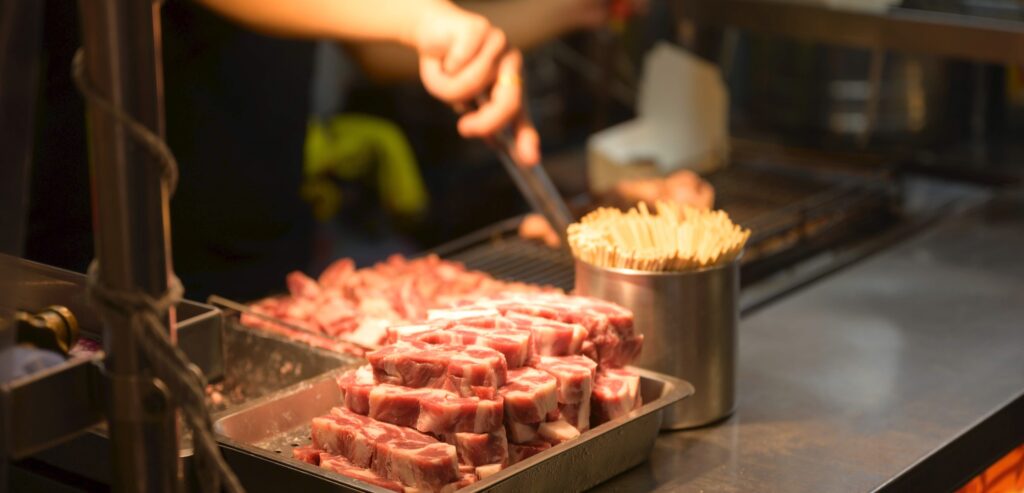
One of the easiest ways to get sick on your Bali holiday is through contaminated food and there are certain categories of high-risk foods that you may want to avoid on your holiday:
Raw and peeled fruit and vegetables – these are often washed in contaminated water or have elements of fecal matter on them
Green leafy vegetables – particularly salad vegetables like spinach and lettuce
Undercooked meat – you want hot food wherever possible and ideally, food that has not been sitting around cooling
Seafood – this is particularly true for raw products like sushi or any undercooked fish or shellfish
Dairy foods – this is particularly true of unpasteurised products such as milk or certain cheeses which are very big food poisoning risks
Food from street vendors – not every street vendor presents a food poisoning risk but watch their hygiene and how freshly cooked things are, you are much less likely to have an issue if there’s a nice queue of people in front of you and they’re cooking everything as people wait
Cooled food – hot food that goes cool can easily become contaminated even if any original bacteria were killed during cooking, thus you can get food poisoning from this kind of food
Buffets – these are very easily contaminated by their guests and food poisoning is common, particularly at cheaper buffets
Tap Water Vs Bottled Water – A Big Risk For The Dreaded Bali Belly
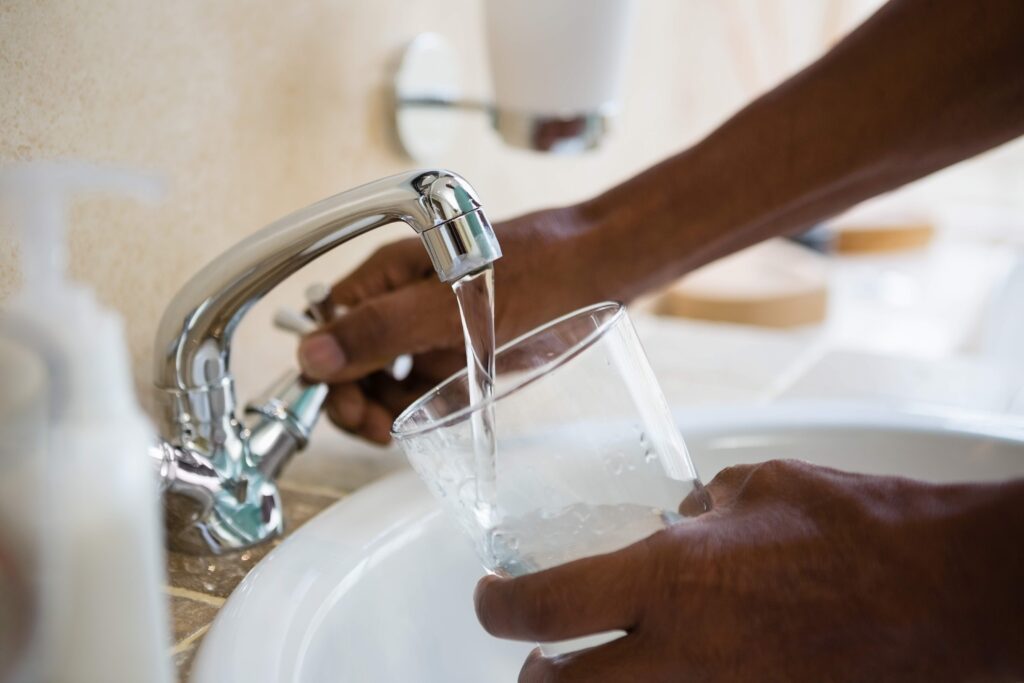
As a general rule of thumb, it’s best to drink bottled water if you want to avoid stomach problems but here are some tips for dealing with water in Bali:
Don’t drink any water that you’re not sure is safe and don’t brush your teeth with it either
Buy and drink bottled or filtered water, carbonated water is less likely to be contaminated water than still water
Always boil tap water for at least 5 minutes if you intend to drink it
Avoid ice cubes unless you are sure they’re made with bottled or filtered water
Don’t wash things you eat in tap water
How To Prevent Bali Belly With Hygiene
The good news is that you can help to reduce the risks of getting sick if you use some simple hygiene practices:
Always wash your hands before you eat, before you prepare any food and after you visit the toilet. Use both soap and water.
Always dry your hands and ensure they are completely dry before you touch any food.
Also dry any dishes, cups, utensils, etc. completely before you use them for food or drinks.
Always eat at reputable local restaurants that are obviously clean and well-maintained
Unfortunately, children are more at risk of getting sick and the consequences can be worse than for adults as dehydration can be very dangerous for children.
To help your kids stay healthy you can follow these simple tips:
Make sure your children aren’t crawling around on the floor wherever possible, put them in a stroller or help them stand upright
Make sure your children wash their hands on a regular basis and aren’t putting unwashed fingers into their mouths
If you use formula milk, preferably use bottled water to make it but if you must use water from the tap make sure to boil it for a minimum of 5 minutes
Is There A Vaccine Against The Bali Belly?

There is no vaccine per se. However, it’s worth noting that taking the oral cholera vaccine has been shown to reduce the number of cases of traveller’s diarrhoea.
So much so that doctors are often willing to provide this vaccine if you let them know you are going to travel.
It appears to also suppress E. coli bacteria as well as cholera bacteria.
It is safe to take this vaccine as long as you are over the age of 2 years old.
If you need to seek medical advice, you should do so and then you will find that a diagnosis is often based simply on your previous medical history and possibly a physical examination.
They won’t normally require a stool sample unless you’ve been sick for several days. In this instance, your doctor will be trying to find out exactly what is making you sick so that they can provide the right medicine to treat it.
Otherwise, the treatment tends to focus on hydrating and helping you replace lost salts.
How Do You Treat Bali Belly?

The best thing you can do is to avoid getting sick in the first place. However, no matter how careful you are – it’s possible to get ill and once you do, you should find that the problem lasts no more than four days and you can treat it yourself by doing some (or all) of the following:
Drinking lots of water (bottled, of course) will help to rehydrate you and ensure that you don’t put yourself at risk of serious illness
Drinking oral rehydration salts (these can be purchased as drinks or bought in sachets and dissolved in water) to help replace the lost salts and minerals you need
Taking any prescribed antibiotics – don’t self-medicate with antibiotics as they can make you sicker if you don’t need them as they will further upset your gut biome but if your doctor gives you them, take them and make sure to take them at the right time of day and to finish the course
Taking anti-nausea drugs – these are travel sickness pills and you can self-medicate with them if you find that you feel queasy or if your doctor has prescribed them
Cut out dairy products – once you’re sick, dairy can worsen diarrhea, so it’s best to avoid it
Don’t take anti-diarrhoea medication if you have a fever – it’s fine to use Immodium otherwise, but if you have a fever, the odds are good that you have a bacterial infection and going to the toilet is how your body is expelling the infection, if you stop that process, you will just stay sick for longer
Can You Get Bali Belly More Than Once?
Yes. Sadly, one case of traveller’s diarrhoea does not confer any immunity against future cases.
This is, of course, because there are so many different potential causes of sickness.
However, as long as you’re taking sensible hygiene precautions, it’s unlikely that you will get a second bout on a short holiday.
Who To See If I Need Help With Bali Belly?
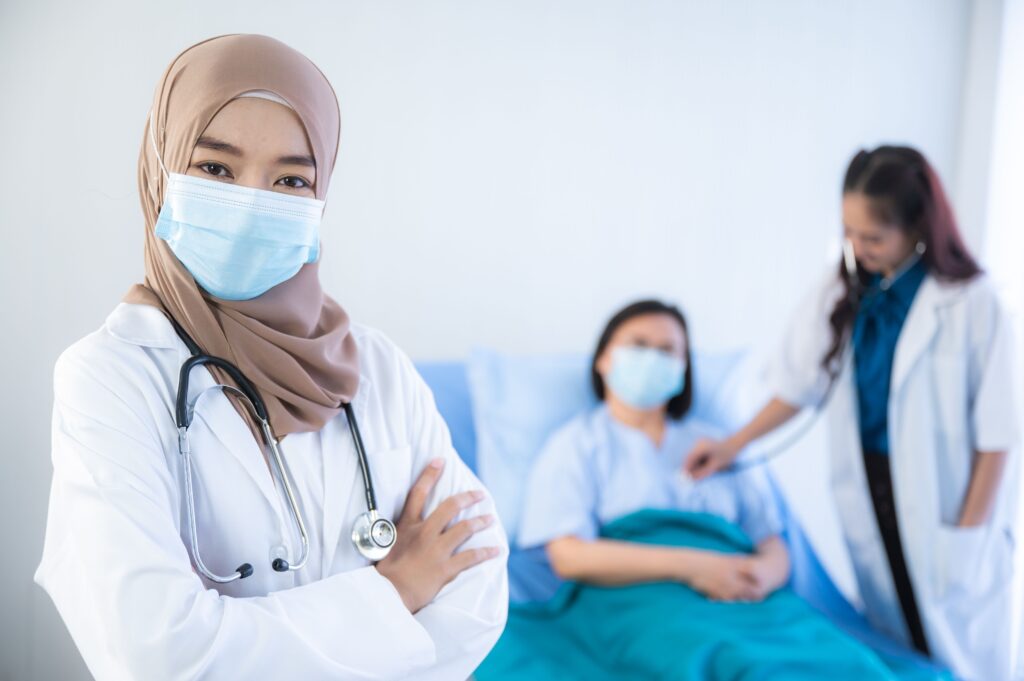
Most cases will clear up on their own and we’d recommend that you wait for 24 hours before seeking help unless things are very distressing (such as blood in your stools).
Your first line of assistance will be your local pharmacist who can provide Immodium (if you don’t have a fever), rehydration salts and some advice.
If things aren’t getting any better after 24 hours, you should consult a doctor and see if they can help.
Important Points About Bali Belly
There are a few things to remember about this condition that can help while you deal with it:
It’s a very common problem and while you can take precautions to try and prevent it, there are no guarantees that you won’t get sick
The symptoms are fairly consistent and involve diarrhoea, abdominal issues, and very frequent trips to the toilet
The problem usually clears up on its own after a day or two and rarely lasts for more than four days
FAQs
What Is A Bali Belly?
This is a term for traveller’s diarrhoea caused by contamination of food or water, by a virus or parasite and possibly by a micro-organism your body is not used to.
How Long Does Bali Belly Last?
Typically, it will last for 24 hours but may persist for up to 4 days. If you have been sick for more than 4 days, you should seek urgent medical advice.
How Do You Get Rid Of Bali Belly?
Mostly, you wait for it to pass and drink water and take salt replacements. In more severe cases, you may need medicine from a doctor too.
Why Do Australians Get Bali Belly?
Australians get it in the same way as everyone else does, by eating or drinking something contaminated, by catching a virus or parasite or by being exposed to new micro-organisms.
Is Bali Belly The Same As Gastro?
Yes, gastro is an alternative name for traveller’s diarrhea in Australia.
Is Bali Belly Contagious?
It can be. Certainly, you don’t want to come into contact with the feces of someone who is sick.
However, if the sick individual has a virus, it may be transmitted in other ways too.
How Do You Avoid Bali Belly?
There are no certain ways to prevent this condition, however, by ensuring you practice good hygiene and eat and drink sensibly, you can certainly reduce your likelihood of getting sick in Bali.
It is worth noting that, according to the CDC, between 30 and 70% of all travellers may get this condition on any given trip abroad.
Bali Belly is no fun but it’s not too hard to avoid getting it in the first place, particularly if you avoid drinking tap water and opt for bottled water, instead.
Consuming contaminated food is harder to avoid but sensible precautions will lower your risks.
If you do get sick, don’t panic, most cases of Bali Belly last no more than 24 hours and though you may not feel 100% again straight away, you can definitely go back to enjoying your holiday.

